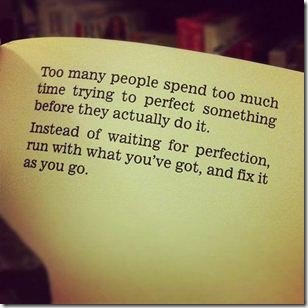A new study suggests that students who turn in homework at the last minute get worse grades.
Of the 777 students involved, 86.1 percent waited until the last 24 hours to turn in work, earning an average score of 64.04, compared to early submitters’ average of 64.32 — roughly equivalent to a ‘B’ grade.
But the average score for the most part continued to drop by the hour, and those who turned in the assignment at the last minute had the lowest average grade of around 59, or around a C+.
It’s a bit of a no brainer and something that a reasonable person might have accurately assumed absent this research, but I think a more important question remains unanswered:
Are the procrastinators learning less?

I am a strong advocate of purposeful procrastination in all non-critical tasks. If I report is due to my boss on Friday, I will wait until the last possible moment to begin working on it, filling my time in between with more meaningful and enjoyable tasks. Being constantly concerned with the prospect of death, the last thing I want to do is spend my final day on Earth completing something mundane or ultimately unnecessary that I could’ve been done three days later.
Many think that factoring in the possibility of death into my to-do list is fairly insane, but those critics will die someday, and it will probably be on a crisp, September day spent sorting receipts for next year’s taxes.
As a purposeful procrastinator, I’m left wondering if the procrastinators in this study who are turning in work at the last moment and achieving slightly lower grades are actually learning less, or are their grades merely a reflection of a rushed effort that contains all of the learning required but with less polish?
And if so, do these lower grades actually matter? If the procrastinators and the non-procrastinators are equal in their learning, do the slightly higher grades of the non-procrastinators yield a greater number of job offers? Higher starting salaries? More rapid advancement?
In most cases, I don’t think so.
I’d also love to see the differences in happiness between procrastinators and non-procrastinators. In my admittedly biased and anecdotal experience, the procrastinators of the world seem to be a more relaxed and less anxious group of people. They seem to handle stress and uncertainty better. They appear to be less concerned with the opinions of others. They are not the ardent people-pleasers that aggressive completionists tend to be.
Don’t get me wrong. All procrastination is not good. Allowing your laundry to reach the point that you must devote an entire day to it is not a good idea. Waiting until the last minute to write your novel will probably result in a poor effort. Forgoing your oil change for another 5,000 miles is not a wise decision.
But a fairly innocuous college assignment?
Maybe the slightly lower grade isn’t such a bad thing if you fill the time that you spend procrastinating with something that is meaningful or joyful or more valuable.
And perhaps the process of completing the assignment at the last minute has its benefits as well. By purposefully procrastinating, maybe a person learns to manage stress better. Focus more effectively. Handle uncertainty with greater deftness.
This is the kind of research that I would like to see.


